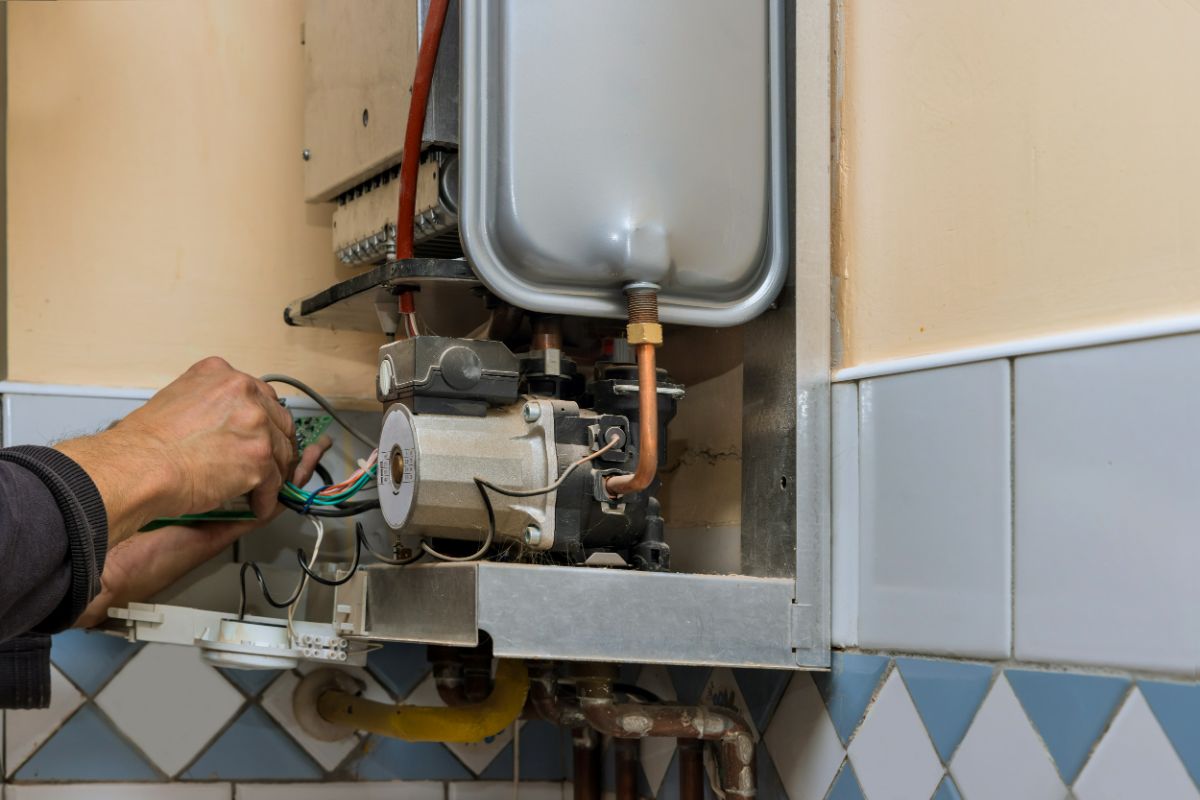Caring for Your Home's Hot Water System: Important TipsEasy Guide to Maintaining Your Home's Hot Water System
Caring for Your Home's Hot Water System: Important TipsEasy Guide to Maintaining Your Home's Hot Water System
Blog Article
Were you hunting for suggestions about What Kind of Maintenance Do Water Heaters Need??

Warm water is crucial for daily convenience, whether it's for a refreshing shower or cleaning dishes. To ensure your warm water system runs effectively and lasts much longer, regular upkeep is key. This post provides useful pointers and insights on just how to maintain your home's hot water system to stay clear of disruptions and expensive repairs.
Introduction
Keeping your home's hot water system may appear challenging, however with a couple of easy actions, you can guarantee it operates efficiently for years to find. This guide covers every little thing from understanding your hot water system to do it yourself upkeep tips and understanding when to call professional assistance.
Value of Keeping Your Hot Water System
Routine upkeep not just extends the life expectancy of your warm water system yet also ensures it operates effectively. Disregarding maintenance can result in reduced performance, greater power bills, and even premature failing of the system.
Indications Your Warm Water System Demands Upkeep
Recognizing when your hot water system needs attention can avoid significant concerns. Keep an eye out for indicators such as inconsistent water temperature, unusual noises from the heating unit, or rustic water.
Purging the Hot Water Heater
Purging your hot water heater gets rid of debris buildup, improving effectiveness and extending its life.
Checking and Changing Anode Rods
Anode poles stop deterioration inside the container. Evaluating and changing them when broken is critical.
Complex Issues Calling For Specialist Aid
Examples include major leakages, electric troubles, or if your hot water heater is constantly underperforming.
Regular Expert Maintenance Advantages
Expert maintenance can include comprehensive inspections, tune-ups, and ensuring compliance with safety and security criteria.
Checking and Adjusting Temperature Level Setups
Adjusting the temperature setups makes certain ideal performance and safety.
DIY Tips for Upkeep
You can do a number of maintenance tasks on your own to maintain your hot water system in top condition.
Checking for Leaks
Consistently check pipelines and links for leaks, as these can lead to water damages and greater bills.
Understanding Your Warm Water System
Prior to diving into upkeep jobs, it's valuable to understand the standard elements of your hot water system. Usually, this includes the hot water heater itself, pipes, anode poles, and temperature controls.
Monthly Upkeep Tasks
Routine monthly checks can aid catch minor concerns before they rise.
Checking Pressure Alleviation Valves
Evaluating the pressure safety valve ensures it operates properly and prevents too much pressure build-up.
Protecting Pipelines
Protecting hot water pipelines reduces warmth loss and can save power.
When to Call an Expert
While do it yourself maintenance is advantageous, some concerns need expert expertise.
Verdict
Regular upkeep of your home's hot water system is necessary for efficiency, durability, and cost financial savings. By following these ideas and recognizing when to seek specialist help, you can make sure a reputable supply of hot water without unforeseen interruptions.
How to Maintain an Instant Hot Water Heater
Before tinkering with your hot water heater, make sure that it’s not powered on. You also have to turn off the main circuit breaker and shut off the main gas line to prevent accidents. Also turn off the water valves connected to your unit to prevent water from flowing into and out of the appliance. 2. When you’re done, you have to detach the purge valves’ caps. These look like the letter “T” and are situated on either side of the water valves. Doing so will release any pressure that has accumulated inside the valves while at the same time avoid hot water from shooting out and burning your skin. 3. When the purge valves’ caps are removed, you have to connect your hosing lines to the valves. Your unit should have come with three hoses but if it didn’t, you can purchase these things from any hardware or home repair shops. You can also get them from retail stores that sell water heating systems. Read the user’s manual and follow it to complete this task properly. When the hosing lines are connected, open the purge port’s valves. 4. You should never use harsh chemical cleaners or solutions when cleaning your unit. Make use of white vinegar instead. It should be undiluted and you’ll probably use about 2 gallons. 5. Now flush your water heater. This task should probably take about 40 minutes. We can’t give you specific directions for this because the procedure is carried out depending on the type, model and brand of your heater. With that being said, refer to the user’s manual. 6. When you’re done draining the unit, you have to turn off the purge port valves again. Remove the hosing lines that you earlier installed on each of the water valves. Put the valve caps (purge port) back in their respective places and be very careful so as not to damage the rubber discs that are found inside these caps. 7. Now that everything’s back in place, check your user’s manual again to find out how to reactivate your water heating system. 8. Once it is working, turn one of your hot water faucets on just to let air pass through the heater’s water supply pipes. Leave the tap on until water flows smoothly out of it. https://www.orrplumbing.com/blog/2014/september/how-to-maintain-an-instant-hot-water-heater/

We hope you enjoyed our topic on Tips For Maintaining Your Hot Water Heater. Thanks a lot for taking time to read our blog. Please set aside a second to share this entry if you enjoyed it. Kudos for being here. Return soon.
Find Out More Report this page